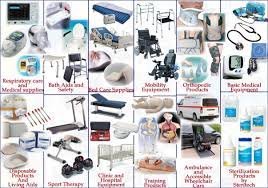Medical Equipment Assistant (Basic Clinical Equipment)

Introduction: In the intricate web of healthcare, where every minute counts and precision is paramount, the smooth functioning of medical equipment is indispensable. From thermometers to blood pressure monitors, basic clinical equipment forms the backbone of patient care across various medical settings. However, ensuring the proper functioning, maintenance, and availability of these devices requires dedicated support. This is where Medical Equipment Assistants (MEAs) step in, playing a vital role in optimizing healthcare delivery.
Understanding the Role of Medical Equipment Assistants: Medical Equipment Assistants, also known as Biomedical Equipment Technicians or Clinical Engineering Technicians, are integral members of the healthcare team responsible for managing and maintaining basic clinical equipment. Their role encompasses a wide array of responsibilities aimed at ensuring the reliability, accuracy, and safety of medical devices used in patient care.
Key Responsibilities of Medical Equipment Assistants:
- Equipment Maintenance and Repair: MEAs are tasked with conducting routine maintenance procedures and troubleshooting issues to ensure that medical equipment functions optimally. This includes calibrating devices, performing preventative maintenance, and addressing any malfunctions promptly to minimize downtime and ensure continuous patient care.
- Equipment Inventory Management: MEAs maintain meticulous records of all clinical equipment, including inventory levels, usage statistics, and maintenance histories. They oversee the procurement process, ensuring that adequate supplies of essential devices are always available and that outdated or malfunctioning equipment is promptly replaced.
- Training and Support: MEAs provide training and technical support to healthcare staff on the proper use and handling of medical equipment. They educate users on equipment functionalities, safety protocols, and troubleshooting techniques to promote efficient and effective utilization of resources.
- Compliance and Safety: MEAs adhere to regulatory guidelines and standards to ensure that all medical equipment meets safety requirements and operational specifications. They conduct regular inspections and audits to identify any compliance issues and implement corrective measures to mitigate risks to patients and healthcare providers.
- Collaboration and Communication: MEAs collaborate closely with clinical staff, equipment vendors, and other stakeholders to address equipment-related concerns and optimize workflow processes. Effective communication channels are maintained to facilitate timely resolutions to equipment-related issues and promote a culture of continuous improvement.

Importance of Medical Equipment Assistants in Healthcare: The role of Medical Equipment Assistants is indispensable in maintaining the functionality and reliability of basic clinical equipment, which forms the foundation of patient care in healthcare facilities. By ensuring the proper maintenance, repair, and availability of medical devices, MEAs contribute to:
- Enhanced Patient Safety: Reliable medical equipment reduces the risk of errors and adverse events, safeguarding the well-being of patients undergoing diagnostic tests or medical procedures.
- Improved Efficiency: Well-maintained equipment minimizes downtime and prevents disruptions in healthcare services, allowing for smoother workflow processes and timely patient care delivery.
- Cost Savings: Proactive maintenance and repair of medical equipment help to extend their lifespan and reduce the need for premature replacements, resulting in cost savings for healthcare institutions.
- Regulatory Compliance: By adhering to regulatory requirements and safety standards, MEAs ensure that healthcare facilities maintain compliance with governing bodies, avoiding penalties and legal liabilities.
- Quality Patient Care: Access to properly functioning medical equipment enables healthcare providers to deliver accurate diagnoses and effective treatments, thereby enhancing the overall quality of patient care.
Future Trends and Challenges: As technology continues to advance, the role of Medical Equipment Assistants is evolving to encompass the management of increasingly complex medical devices, such as imaging systems and robotic surgical equipment. MEAs must stay abreast of emerging technologies and undergo continuous training to adapt to evolving equipment landscapes.
Moreover, healthcare institutions face challenges such as budget constraints, staffing shortages, and the need for interoperability between different equipment systems. MEAs play a crucial role in addressing these challenges by optimizing resource utilization, implementing cost-effective maintenance strategies, and fostering collaboration across multidisciplinary teams.
Conclusion: Medical Equipment Assistants play a vital role in ensuring the functionality, reliability, and safety of basic clinical equipment in healthcare settings. Their diverse skill set and dedication contribute to enhancing patient safety, improving healthcare efficiency, and facilitating the delivery of quality patient care. As healthcare technology continues to evolve, the role of MEAs will remain indispensable in optimizing equipment management and supporting the overall mission of healthcare institutions.
